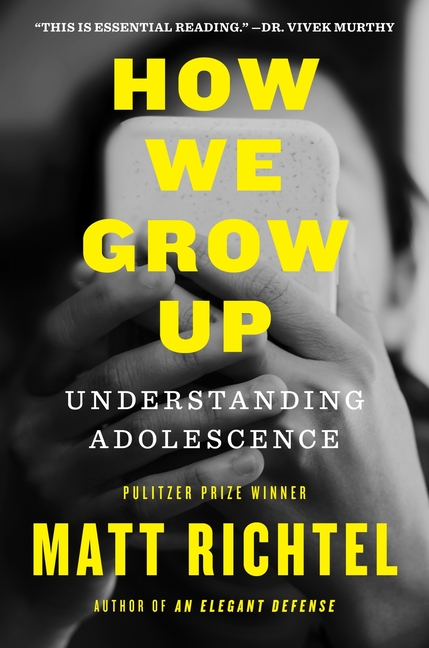Rather than questioning the existence of a teen mental-health crisis, Richtel seeks to contextualize it ... His sideline comes through in the prose of How We Grow Up, which is full of cliffhanger paragraph breaks and staccato fragments. It’s a book that seems acutely conscious of holding the reader’s attention, resorting at times to bullet points and chatty interjections ... Richtel has reported extensively on the dangers of distracted driving, and perhaps it’s a credit to his prior work that he’s inclined to treat teens and their phones as part of the broader phenomenon of our tech-mediated lives—a phenomenon in which the teens themselves are active participants rather than pliant victims ... One of the teen subjects of How We Grow Up is a trans boy in Utah, and Richtel approaches his experience as well as that of his parents with sensitivity. Rather than casting kids as zombies or aliens, How We Grow Up insists on the continuity between young people and the adults around them, while acknowledging that the relationships involved aren’t always easy. The book’s warmth and sympathy distinguish it on the crowded shelf it occupies ... The voice of an overcaffeinated social-studies teacher straddling the back of a chair—that is to say, earnest enough to be unembarrassable and trying very hard to connect. I’m not sure it will work, but it’s nice to see the effort.
Read Full Review >>

